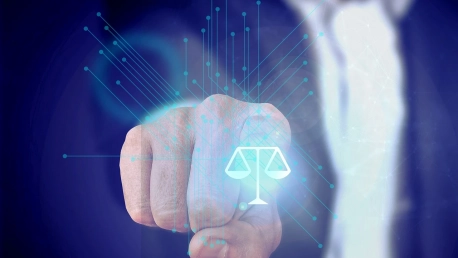Court Rules AI in HR Must Comply with Federal Anti-Discrimination Laws
The U.S. District Court for the Northern District of California has recently handed down a pivotal decision on the use of artificial intelligence (AI) in human resources (HR) processes. This landmark case, involving Workday, Inc., an AI-enhanced HR software provider, addresses the intersection of AI and employment law under major federal anti-discrimination statutes such as Title VII of the Civil Rights Act of 1964, the Age Discrimination in Employment Act of 1967 (ADEA), and the Americans with Disabilities Act (ADA). The ruling underscores the imperative for AI tools to adhere strictly to anti-discrimination laws, setting a significant precedent for how technology is integrated into employment practices.
AI in Employment Decisions
The advent of AI technology in HR has revolutionized how companies screen and source job candidates. However, a critical concern has emerged: can these AI tools inadvertently perpetuate or introduce biases that contravene anti-discrimination laws? Plaintiff Derek Mobley’s complaint against Workday brings this issue into sharp focus, alleging that the company’s AI-based tools rejected his job applications based on protected characteristics rather than his qualifications. This raises the question of whether the legal responsibilities traditionally borne by human decision-makers should extend to AI systems. The court took a deep dive into the operational mechanics of Workday’s AI tools, scrutinizing how these systems could potentially lead to disparate impact—a form of discrimination where practices disproportionately affect a particular group, even without intentional bias. By delving into the ethical and legal responsibilities of AI in hiring, the court set a precedent for evaluating AI against the same stringent standards applied to human recruiters.
Redefining Legal Responsibilities and Terms
A unique aspect of this case was the court’s examination of the terms “employment agency” and “agent” within the modern context of AI integration. Historically, these terms were straightforward, but the introduction of AI systems necessitates a rethinking. Mobley’s argument hinged on the assertion that Workday, through its AI tools, operated essentially as an “agent” of the employers who utilized its software. The court’s interpretation extended the definition of “employer” to include entities that perform traditional employer functions through AI. This redefinition aligns legal verbiage with contemporary technology, ensuring that AI tools used in HR processes fall within the scope of anti-discrimination laws. The decision underscores that whether it’s a human or an AI system making the hiring decisions, the legal obligations remain consistent.
Disparate Impact vs. Intentional Discrimination
One of the critical distinctions made by the court was between disparate impact and intentional discrimination. While Mobley’s case primarily centered on disparate impact—where seemingly neutral practices disproportionately affect protected groups—the court also addressed the absence of clear evidence for intentional bias in Workday’s AI tools. However, the nuanced nature of AI bias means even unintended outcomes can have significant discriminatory effects. The court allowed for the possibility that more evidence might come to light during discovery, particularly regarding the training data used in the AI systems. This highlights the importance of transparency and rigorous testing in AI development to ensure compliance with anti-discrimination laws.
Challenges of AI Bias and Training Data
AI systems are only as unbiased as the data they are trained on. The court’s decision underscored this by pointing out potential pitfalls in the training data Workday’s algorithms utilized. If the data itself contains inherent biases—whether related to race, age, disability status, or any other protected characteristic—the AI system will likely perpetuate those biases in its decision-making processes. This case brings attention to the need for AI vendors and employers to conduct comprehensive audits of their training data and algorithms. Failure to address these biases not only risks legal liability but also undermines the ethical standards expected in modern hiring practices. Ensuring that AI-driven processes are scrutinized for fairness and equity is becoming increasingly crucial.
Statutory Interpretations and Broadened Definitions
The court’s decision also tackled the broader interpretation of statutory definitions under Title VII, ADA, and ADEA. By considering Workday as an “agent” of the employers using its software, the court set a broader legal framework for understanding how AI tools fit within existing employment laws. This expanded interpretation means that vendors of AI tools could be held to the same standards as the employers themselves, emphasizing a shared legal responsibility in preventing discrimination. The ruling suggests a need for clear guidelines and oversight to ensure AI systems comply with anti-discrimination laws, reinforcing the principle that technological advancements should not compromise established legal protections.
Support and Influence from the EEOC
The U.S. District Court for the Northern District of California has delivered a critical decision regarding the use of artificial intelligence (AI) in human resources (HR) operations. The case focuses on Workday, Inc., an AI-driven HR software company, marking a significant moment at the crossroads of AI and employment law under key federal anti-discrimination statutes. These statutes include Title VII of the Civil Rights Act of 1964, the Age Discrimination in Employment Act of 1967 (ADEA), and the Americans with Disabilities Act (ADA). The court’s decision accentuates the necessity for AI applications to fully comply with anti-discrimination laws, establishing an important precedent for how technology should be utilized in employment settings. This landmark ruling not only underscores the legal requirements but also emphasizes the ethical obligations of integrating AI into HR practices. Companies using AI in their HR processes now must ensure that their tools do not perpetuate biases or result in unfair treatment of candidates based on race, age, disability, or other protected characteristics. This decision is set to influence how businesses across the nation deploy AI in their hiring, promotion, and other employment-related practices. As AI continues to evolve and become more entrenched in HR operations, adherence to these anti-discrimination laws will be crucial in maintaining fair and equitable treatment in the workplace.









